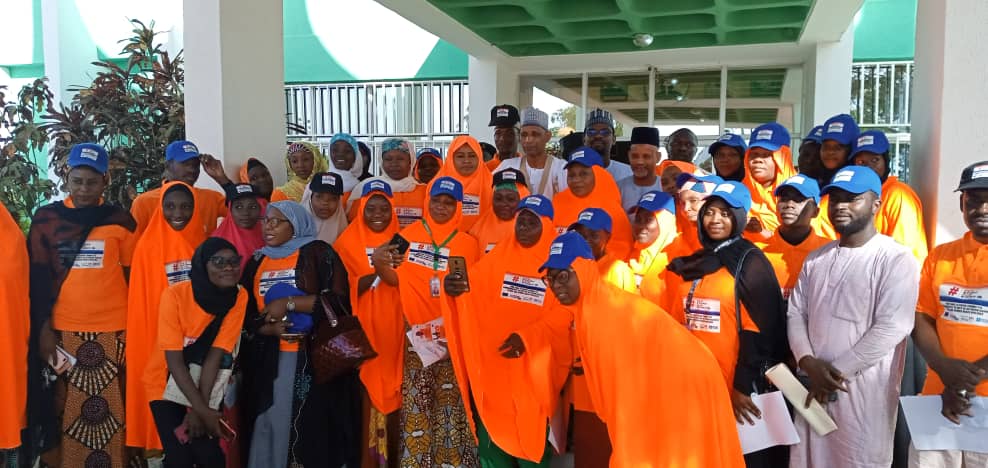Sexual and Gender-based violence (SGBV) is a world-wide problem that is attracting more public attention in Nigeria today. Apparently worsened by the greater physical proximity of family members caused by the Covid-19 restrictions, sexual and gender-based violence (SGBV) in general and violence against women ang girls (VAWG) in particular have become a widely reported issue of public concern. Our Correspondent discussed with Barrister Fatima Makintami, Programme Officer for FIDA in Yobe State on how the European Union funded Managing Conflict in Northeast Nigeria (MCN) Programme, implemented by the British Council has strengthened the efforts of stakeholders to reduce the menace of SGBV in the State.
According to the UN report on Gender Based Violence in Nigeria during the COVID 19 crisis, there is a general increase in GBV across all six geopolitical zones and service providers have reported sharp increases in cases of intimate partner violence and domestic violence. Data on reported incidents of GBV cases in the country based on preliminary information from 24 states shows that in March, the total number of GBV incidents reported were 346, while in the first part of April, incident reports spiked to 794, depicting a 56 per cent increase in just two weeks of lockdown. Some of these incidents of violence have tragically resulted in the death of victims, the rape of children, including incestual rape, and tenant–landlord assault.
Globally, it is estimated that one in three women experience either physical or sexual intimate partner violence or non-partner sexual violence in their lifetime. These figures are mirrored in Nigeria, with 30 per cent of girls and women aged between 15 and 49 reported to have experienced sexual abuse. Insurgency and protracted conflict have only served to exacerbate the occurrence of GBV in the North East. Harmful practices such as child marriage are prevalent in Nigeria, with 43 per cent of girls married before the age of 18; while 20 per cent of women aged 15 to 49 have undergone FGM. Once girls in Nigeria are married, only 1.2 per cent of those aged 15 to 19 have their contraception needs met, leading to high levels of early and teenage pregnancy.
Addressing SGBV in Yobe
In response to the prevalence of sexual and gender based violence, the European Union Funded Managing Conflict in Northeastern Nigeria (MCN) programme has been supporting communities in Yobe State to find solutions. The MCN programme, implemented by the British Council, seeks to enhance state and community level conflict management capability to prevent the escalation of conflict into violence in the 3 states of Adamawa, Borno and Yobe. This includes providing a wholesale support for survivors of Sexual and Gender Based Violence (SGBV) in the 3 affected states. MCN also supports other related conflict management initiatives such as the capacity building of traditional rulers and the establishment of community peace and safety partnerships.
At the commencement in 2016 of the MCN Programme in Yobe State, it took over support for the Sexual Assault Referral Centre (SARC) which had been established through partnership between the DFID Funded Justice for All (J4A) Programme, implemented by the British Council, and Yobe Justice Reform Team (JRT).
The Centre is located at the Women and Children Hospital formerly known as Maryam Abacha Maternity Clinic along Gashua road in Damaturu. The facility’s objectives include providing multi- response services through a layered approach where survivors and their families can access medical, psychosocial as well as legal supports in a systematic and coordinated manner.
The Yobe SARC, which has been renamed SHIFA CENTRE, is managed through a steering committee, called the SARC Yobe Steering Committee, comprising of key institutions and agencies of government, civil society organisations as well as community representatives, to ensure a coordinated response to sexual and gender based violence.

 Join Daily Trust WhatsApp Community For Quick Access To News and Happenings Around You.
Join Daily Trust WhatsApp Community For Quick Access To News and Happenings Around You.

